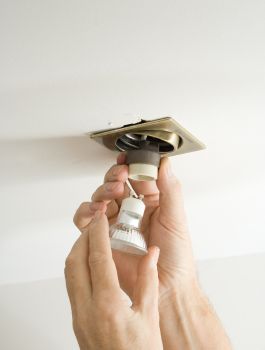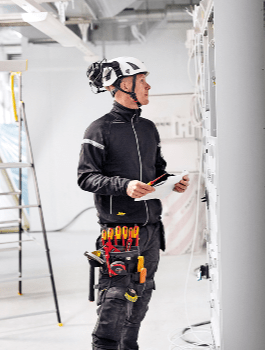What exactly is an air conditioner?
Blog
Essentially the purpose of an air conditioner is to cool the home or business, not by creating cold air but rather by removing heat, but it does so much more besides.
How an air conditioner removes heat from your property
Air conditioners have 3 main components which make up the cooling process:
Evaporator coil (absorbs the heat from the air)
Compressor (draws in low-pressure, cool refrigerant from inside your house)
a condenser coil (outside warm coil which removes the heat from the refrigerant)
The components work in conjunction with each other as follows:
The refrigerant then flows to the warm condenser coil where the compressor compresses the refrigerant making it hotter than the temperature of the air outside.
The outdoor air then absorbs the refrigerant heat flowing through the outside coil until it has cooled down and then flows back indoors to absorb more heat. The refrigerant moves to and fro until the house is at the correct level set by your thermostat.
Having air conditioning used to be a luxury but these days it generally comes as standard in office spaces and transport, it’s just part of everyday life.
There are benefits of air conditioning but there so let’s have a look at some of the points for and against them:
Benefits:
Believe it or not, overheating can affect your mental ability and your levels of physical activity, having a cooling system in place can help negate this, increasing your productivity levels both mentally and physically
It’s much more comfortable to live and work in an environment that stays at the right temperature. Leading on from that it stands to reason that you’ll work better when you’re more comfortable.
Reduced temperature lowers the chances of there being insects and parasites in your surroundings
Lower temperatures equals less sweat and better hydration.
An air conditioner helps keep out allergens such as pollen.
As long as the air conditioner is installed properly and kept in good order, it improves and renews the air quality.
Dangers:
Unfortunately, sudden temperature and humidity changes can, in some cases, affect respiration.
It can dry out your skin.
It does produce noise which can be irritating or off-putting, particularly if installed in a bedroom or any other room that requires a quieter atmosphere.
In extreme cases, the circulating air could pass on infectious diseases.
Dust and fungi in the air could cause an allergic reaction.
Air conditioning has been linked to rhinitis (inflammation inside the nose) and pharyngitis (irritation of the throat).
Air conditioning can aggravate certain eye conditions like conjunctivitis(inflammation in the eye) and blepharitis (swelling around the eyelid) and it may also cause some discomfort for those who wear contact lenses.
Things to remember:
Areas which are air-conditioned need to be ventilated regularly.
Always have your system installed professionally and keep it well maintained, and this applies to stand-alone units as well as central systems.
Your room temperature should always be between 21ºC and 25ºC.
Keep the average humidity somewhere between 60% and 70%.
Quick tip:
If you have a light jacket that can easily fit in a small bag, keep it with you so that when you enter a space with strong air conditioning you can put it on to minimise the effects of the sudden temperature change.
Posted on:
February 04, 2019
Last Updated on
February 04, 2019 10:59

 Hate
Hate
 Dislike
Dislike
 Neutral
Neutral
 Like
Like
 Love
Love





















